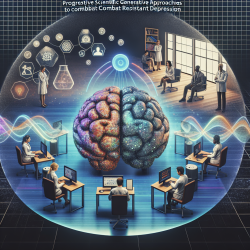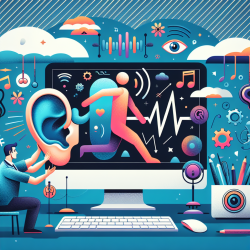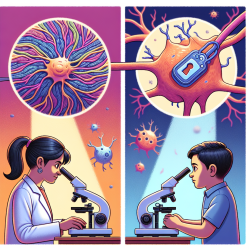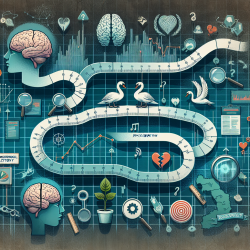Unlocking New Avenues in Treating Resistant Depression
In the ever-evolving landscape of mental health treatment, the challenge of addressing treatment-resistant depression (TRD) looms large. A recent study titled "Repetitive Transcranial Magnetic Stimulation With and Without Internet-Delivered Cognitive-Behavioral Therapy for the Treatment of Resistant Depression" offers groundbreaking insights that could revolutionize how practitioners approach this formidable condition.
Understanding the Study
This study, conducted as a randomized controlled pilot trial, aims to assess the effectiveness of combining repetitive transcranial magnetic stimulation (rTMS) with internet-delivered cognitive-behavioral therapy (iCBT) compared to rTMS alone. The trial involved 100 participants diagnosed with TRD, who were divided into two groups: one receiving rTMS alone and the other receiving both rTMS and iCBT.
Why This Matters
Depression remains a severe and disabling condition, with a significant percentage of patients not responding to traditional antidepressant treatments. The integration of rTMS, a non-invasive procedure that uses magnetic fields to stimulate nerve cells in the brain, with iCBT, a structured online therapy, presents a novel approach to tackling TRD.
Key Findings
- Participants receiving the combined treatment of rTMS and iCBT showed superior outcomes compared to those receiving rTMS alone.
- The study hypothesizes that the dual approach could enhance treatment efficiency and improve patient outcomes significantly.
- By integrating psychotherapy with neurostimulation, the study opens up new possibilities for personalized, patient-centered care.
Implications for Practitioners
For practitioners, these findings underscore the importance of exploring combined treatment modalities. By incorporating iCBT into their therapeutic arsenal, practitioners can offer a more comprehensive treatment plan that addresses both the physiological and psychological aspects of depression.
Encouraging Further Research
While the study provides promising data, it also highlights the need for further research to validate these findings and refine treatment protocols. Practitioners are encouraged to stay informed about ongoing studies and consider participating in clinical trials to contribute to the growing body of evidence supporting these innovative treatments.
Conclusion
The integration of rTMS and iCBT represents a significant advancement in the treatment of resistant depression. As the mental health field continues to embrace technology and innovative therapies, practitioners have the opportunity to lead the charge in offering cutting-edge care to their patients.
To read the original research paper, please follow this link: Repetitive Transcranial Magnetic Stimulation With and Without Internet-Delivered Cognitive-Behavioral Therapy for the Treatment of Resistant Depression: Protocol for Patient-Centered Randomized Controlled Pilot Trial.










